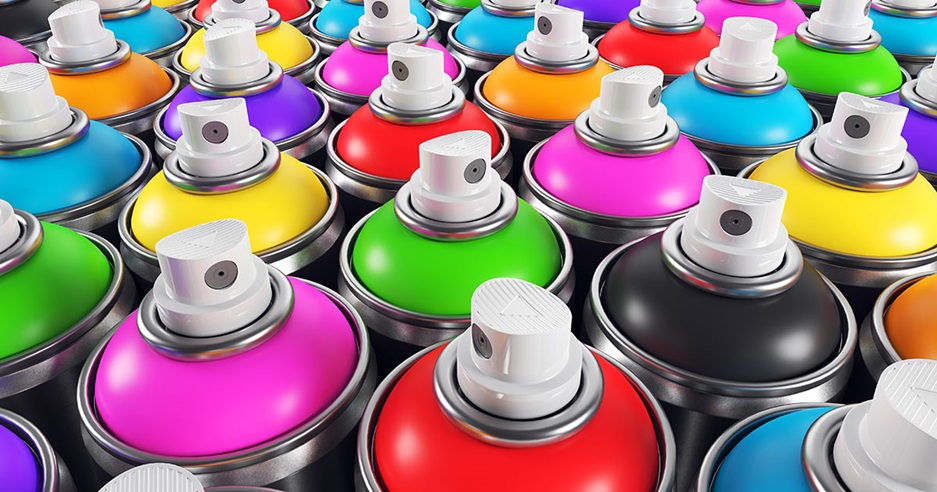Aerosol cans are pressurized containers designed to hold and dispense a wide range of products in aerosol form. These cans are typically made of metal (such as aluminum or tinplate) and are equipped with a valve system that allows the contents to be released as a fine spray or mist when the pressure inside the can is released. The aerosol cans industry is a sector within the packaging industry that specializes in the production of aerosol cans or containers. The global aerosol cans market size is projected to grow from USD 10.2 billion in 2021 to USD 12.2 billion by 2026, at a Compound Annual Growth Rate (CAGR) of 3.7% during the forecast year.
Browse 242 market data Tables and 62 Figures spread through 216 Pages and in-depth TOC on “Aerosol Cans Market by Material (Aluminum, Steel, Plastic), Product Type, Type (Liquefied Gas, and Compressed Gas), End-use Sector (Personal Care, Healthcare, Household Care, Automotive), and Region – Global Forecast to 2026”
Download PDF Brochure: https://www.marketsandmarkets.com/pdfdownloadNew.asp?id=48885732
These cans are typically made of metal (such as aluminum or tinplate) and are designed to hold and dispense a wide range of products in aerosol form, including but not limited to:
- Personal Care Products: Aerosol cans are commonly used for products like hairspray, deodorant, shaving cream, and cosmetics.
- Household Products: They are also used for household items like air fresheners, insect repellents, and cleaning products.
- Automotive Products: Aerosol cans are used for automotive products like spray paints, lubricants, and tire inflators.
- Industrial Products: They find application in various industrial settings for lubricants, paints, adhesives, and cleaning agents.
- Food Products: In the food industry, aerosol cans can be used for products like cooking sprays, whipped cream, and oil sprays.

The demand for aerosol cans in the packaging industry and various end-use industries is influenced by several factors:
- Convenience: Aerosol cans offer convenient and precise dispensing of products, making them popular for a wide range of consumer and industrial applications.
- Preservation: They help preserve the quality and shelf life of the products they contain by protecting them from air and contaminants.
- Safety: Aerosol packaging is designed to be tamper-resistant and often includes safety features like child-resistant caps.
- Marketing: The visual appeal and branding possibilities of aerosol cans play a significant role in their demand. Companies often use innovative packaging designs to attract consumers.
- Environmental Concerns: The environmental impact of aerosol packaging has become a consideration, with efforts to make cans more recyclable and reduce their environmental footprint.
- Regulations: The aerosol cans industry is subject to various regulations and safety standards, which can affect demand and production practices.
Aerosol Cans Market Key Players:
The aerosol cans market has thousands of companies which thrive in their domestic as well as global market. A few of the major manufacturers are Ball Corporation (US), Trivium Packaging (US), Crown (US), Mauser Packaging Solutions (US), Toyo Seikan Co. Ltd. (Japan), Nampak Ltd. (South Africa) CCL Container (US), Colep (Portugal), CPMC Holdings Ltd. (China), Guangdong Sihai Iron-Printing and Tin-Making Co.,Ltd. (China), amongst others. These players have adopted various growth strategies, such as acquisitions, expansions, new product developments, and partnerships/collaborations/agreements to increase their market shares and enhance their product portfolios.
Inquire Before Buying: https://www.marketsandmarkets.com/Enquiry_Before_BuyingNew.asp?id=48885732
Trivium Packaging is formed by the merger of industry leaders Exal Corporation and Ardaghs Global Food & Specialty business. The company offers customers around the world innovative and sustainable packaging solutions. It has a huge production capacity and an outstanding customer service with a presence in more than 66 locations around the globe. The companyfs products include metal containers, primarily for food and aerosols markets, and its end-use categories include food, nutrition, seafood, premium beverage offerings, paints & coatings, chemicals, personal care, pharmaceuticals, and general household end-use categories.
Conclusion
In a rapidly evolving world, market research remains a vital compass for navigating the aerosol cans industry. It enables industry players to anticipate trends, adapt to regulatory changes, innovate technologically, and tailor their products to diverse markets. As the demand for sustainability and customization grows, research becomes even more critical in guiding companies toward a future that is both profitable and responsible. With the insights gained from market research, the aerosol cans industry is well-equipped to face the challenges and opportunities of tomorrow’s packaging landscape.